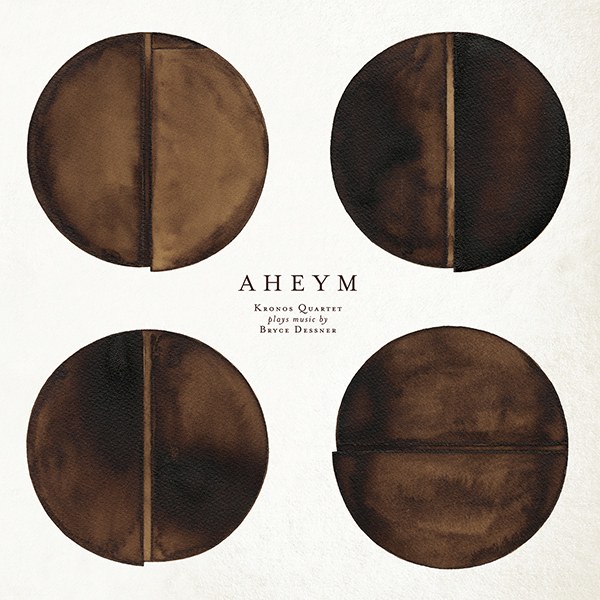Bryce Dessner is proving himself to be one of the brightest minds in modern music. The guitarist for the melancholic indie rock band The National, Dessner has put himself among some of the greatest songwriters and composers of his day.
DESSNER SETS HIMSELF APART
Recently, he collaborated with the Grammy-award winning Kronos Quartet for his classical debut album, “Aheym” to add a little refinement to an already-impressive repertoire. Meaning, “homeward” in Yiddish, "Aheym" is inspired by and dedicated to Dessner’s Polish grandparents, whose tales of voyage to America have shaped both his artistic inspiration and his cultural identity. This narrative unfolds over four beautifully-composed songs performed by The Kronos Quartet, featuring an equally stunning performance by the Brooklyn Youth Chorus and a vocal cameo by singer/songwriter Sufjan Stevens.
The Kronos Quartet is made up of David Harrington and John Sherba on violins, Hank Dutt on viola and Sunny Yang on cello. They are celebrating their 40th year together and continue to challenge the expectations of the classical string-quartet.
Dessner first teamed up with them in 2005 while producing “Dark Was The Night,” an AIDS Charity album that doubled as a who-you-should-be-listening-to catalogue. The quartet recorded the title track for that album, a cover of the Blind Willie Johnson song, “Dark Was the Night, Cold Was the Ground.”
His next encounter with the quartet occurred when he was commissioned to compose a piece for a classical music festival in Brooklyn. That festival inspired the song, “Aheym,” which became the title track for their latest collaboration.
A CLASSICAL COLLABORATION
The opening track, “Aheym” immediately bursts into a chaotic constriction, until it turbulently unravels into a melody of pulsing strings that swell in cacophonous tension, abruptly breaking and leading into “Little Blue Something.”
With the second track comes our first breath of fresh air, as the song practically sighs its way through an eight-minute swoon of violins, only to thrust us back into the gradual intensity of “Tenebre.” Clocking in at 15 minutes, it starts off with a listless melody that buds into a whimsical migration from calm to catastrophic, all climaxing with an eight-layer, indiscernible vocal cameo from Sufjan Stevens. Even though his cameo in “Tenebre” is short and sweet, it removes any sense of antiquity.
The unpredictability and airiness of the track makes it perfect for the eccentric and capricious Stevens, who by the way, is no stranger to working with Dessner. Dessner, alongside companion and composer Nico Muhly, worked on a cycle of songs for Stevens’ galactic epic, “The Planetarium.” Stevens has even accompanied The National on their past three records.
The last track on the album, “Eiffel Tour,” is nothing short of angelic. With the Brooklyn Youth Chorus carrying the entire melody for the first quarter of the song, it is innocent and pure, with the strength of an ancient cathedral. Dessner’s genius shines brightest on this track, the most complex and arguably the most beautiful in the whole collection.
Albeit classical, “Aheym” is surprisingly accessible, a quality lacking from most modern classical works. The Kronos Quartet has always been praised for their ability to employ one of the most mature mediums with a completely fresh approach, and alongside Dessner they have once again delivered. As for Dessner, this approach is anything but expected from the indie-rocker we have come to know.
If fans of The National go to “Aheym” looking for more of that sorrowful savvy, they may be disappointed. However, Dessner’s take on classical is vulnerable, brilliantly beautiful and masterful in its narrative, which are all characteristics of what makes The National so venerable. In that regard, “Aheym” deserves nothing shy of a standing ovation.







